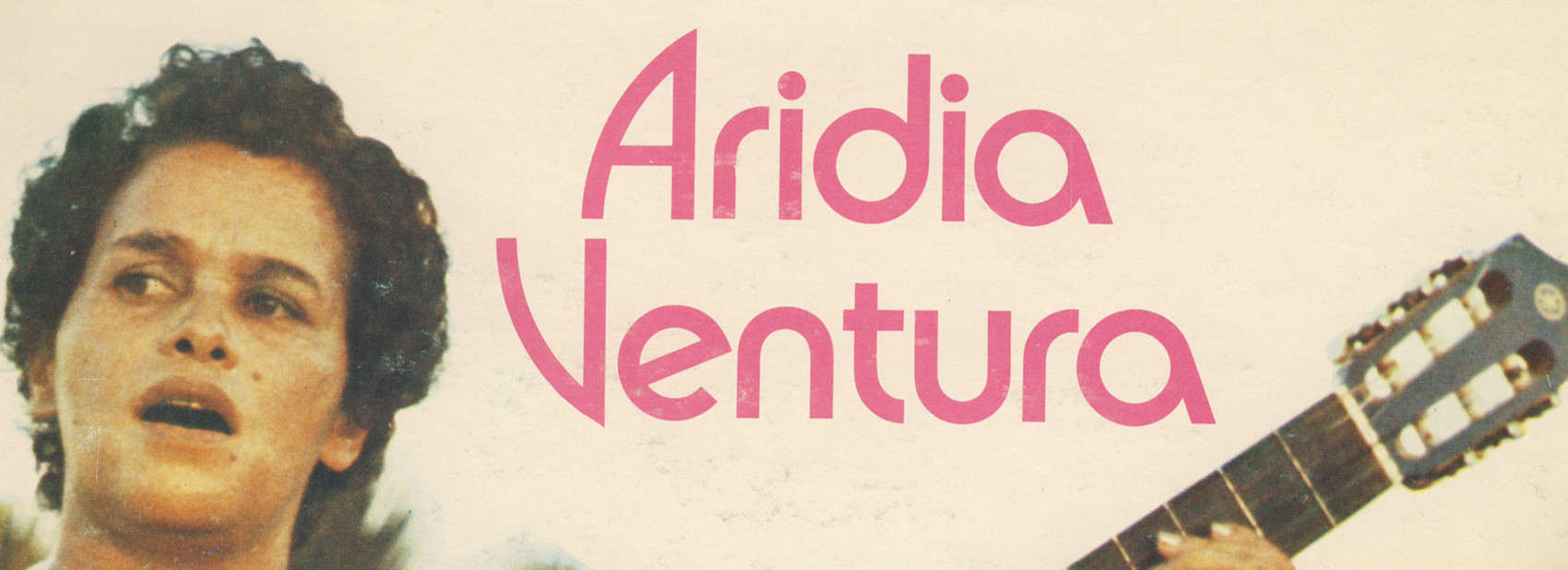
Aridia Ventura was born in the Santiago suburb of Jacagua into a family of eight brothers and one sister, all of whom are musicians or singers. It is not unusual in Dominican society for a child from a large family to be given to childless relatives to raise, and so early in her life Ventura was sent to live with relatives in the Dominican capital, Santo Domingo.
Ventura began recording in 1975, at the age of 26. Her first single was produced by her brother, Adriano Ventura, himself a singer who had had considerable success in the world of bachata with a 1968 ranchera titled “La novia ajena”. Aridia's single met with modest success, although it contained the song “No eres varon” which Ventura would go on to record again later in her career as a major hit.
Her second record, however, for the label Meregildo, was a sensation. Just as her brother had written his hit “La novia ajena” in the style and rhythm of Mexican vals, Ventura composed “En la misma tumba”, a ranchera whose declaration of eternal love and a desire to be buried in the same tomb as her lover – tried and true themes – won over the bachata audience. To this day “En la misma tumba” remains Ventura's biggest hit.
The success of her second single attracted the attention of producer Radhames Aracena, owner of Radio Guarachita. Never slow to identify commercial potential, Aracena knew that the time was ripe for a new female artist, something which hadn’t been seen in bachata since the heyday of Melida Rodriguez ten years earlier. Aracena pressured Aridia to sign a contract with him, and in spite of the misgivings of her brother and others, she agreed to a five year deal. During that time she recorded at least eight LP albums and her music was given consistent airplay over Radio Guarachita, although she never again rivaled her own success with “En la misma tumba”.
In spite of her proven songwriting ability, Aracena typically chose songs for Ventura among previously recorded boleros and rancheras, some of which had been favorites of another era. She continued to compose, however, and one of her merengues, “Pa que”, was recorded by legendary singer Fernandito Villalona. And while she saw little compensation for her work with Aracena, she was able, thanks to her exposure on Radio Guarachita, to keep busy performing in the northern region of the country, El Cibao.
Ventura’s music, like that of Melida Rodriguez and Blanca Iris Villafane before her, told tales of life in barrios and cabarets. Her songs often give voice to the anger of women in situations of infidelity, and her songs of despecho (stinging rebukes of former lovers) earned her the nickname “La verduga”, the torturer. She also had a melancholy side, and the subtle sob in her voice was effective in the kind of despairing love song typical of many Mexican singers. It is no coincidence then that several of her biggest hits were rancheras.
After completing her contract with Aracena, Ventura continued to record for other labels, and was successful well into the 1980s. Her appearances at the Monday night “Amargue” presentations in Santo Domingo contributed to their success and helped to pioneer the acceptance of bachata in the capital. In 1991, Ventura underwent a surgery for a brain tumor which left her partially blind, and seriously curtailed her activity; in addition, a new style of bachata had begun to gain currency and many of the older artists, like Ventura, were shunted aside. It was not until 1997 that Ventura had another, somewhat modest hit, “Dinero”, recorded with Edilio Paredes’ brother Nelson on the lead guitar. The song was to be Ventura’s last significant artistic effort; she passed away in 2001.
bella. guapa. valiente. pionera de la bachata al femenil. las cantantes dominicanas que tomen ejemplo y se hagan notar.
Dios que fuerte esta señora tan importante se llama como yo.
Que bello conocer las raíces ancestrales de la música,a pesar de tener muchos años he podido conocerla hace pocos ,me gusta
Aridia Ventura, digna de grata recordación.
Add new comment